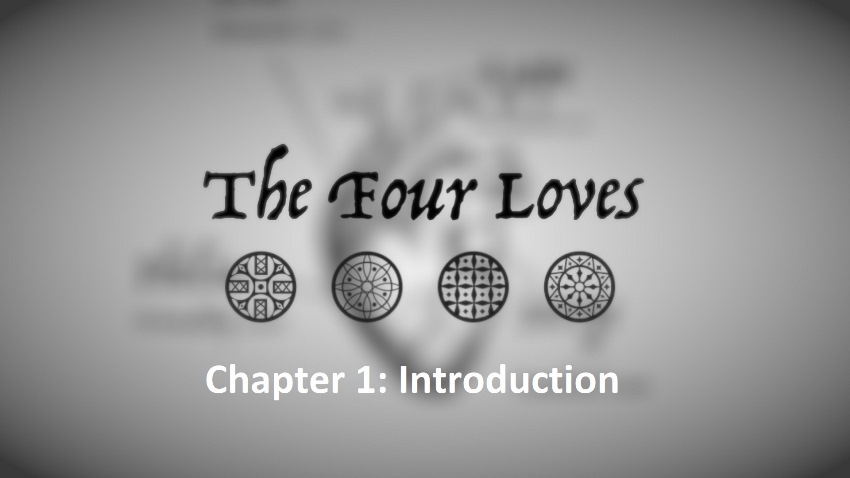The Four Loves – Chapter 1 (“Introduction”)


Our San Diego C.S. Lewis Reading Group will starting a new book this week, The Four Loves.
Once again I will be providing an outline of the arguments presented in each chapter, together with quotations and explanatory notes. The chapters in this book are generally a good bit longer than our previous book (Mere Christianity), so I may well experiment with the format of these posts as I work through each chapter.
Notes and Quotes
1. Lewis thought that St. John’s statement that “God is love” would provide a clear plan for this book
“‘God is love,’ says St. John. When I first tried to write this book I thought
that his maxim would provide me with a very plain highroad through the
whole subject. I thought I should be able to say that human loves deserved
to be called loves at all just in so far as they resembled that Love which is
God”
2. He therefore divided love into two types:
(a) Gift-love
“The typical example of Gift-love would be that love which moves a man to work and plan and save for the future well-being of his family which he will die without sharing or seeing”
(b) Need-love
“…that which sends a lonely or frightened child to its mother’s arms”
3. These types of love reflect both divinity and humanity
(a) Divine Love
“Divine Love is Gift-love. The Father gives all He is and has to the Son. The Son gives Himself back to the Father and gives Himself to the world, and for the world to the Father, and thus gives the world (in Himself) back to the Father too”
(b) Relation to God
“…what…can be less like anything we believe of God’s life than Need-love? He lacks nothing… We are born helpless. As soon as we are fully conscious we discover loneliness. We need others physically, emotionally, intellectually; we need them if we are to know anything, even ourselves”
3. Lewis thought he could just praise Gift-love and disparage Need-love
“I was looking forward to writing some fairly easy panegyrics on the first
sort of love and disparagements of the second… But I would not now deny the name love to Need-love… The reality is more complicated than I supposed”
In this section, Jack uses the term “panegyrics” which refers to a speech in which something is praised. He also refers to his “master, MacDonald” was an author and minister he greatly admired, George MacDonald.